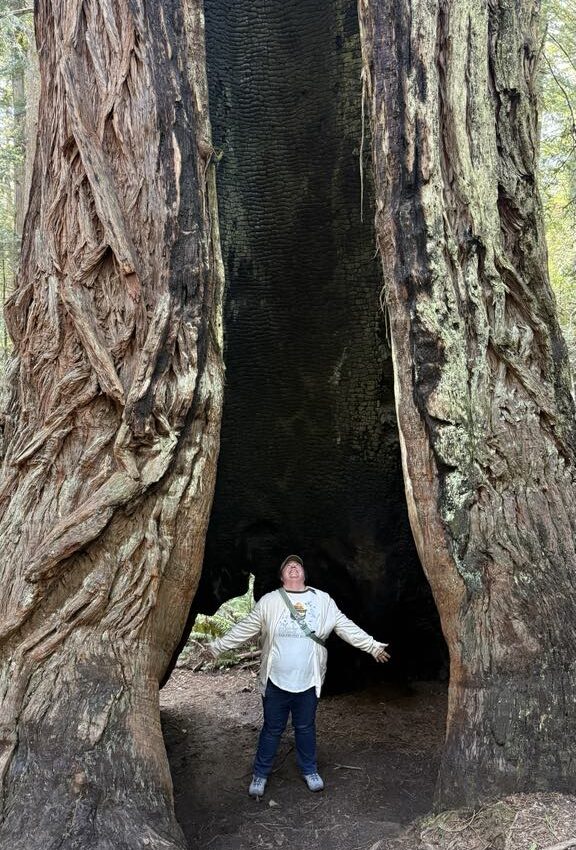Inside a curtained photo booth, a father and his 3-year-old son—a camera flash-captures their smiles and laughter: a mini-eight portrait-souvenir of a joyful moment spent in New York’s Time Square. It’s 1955, the same year this father, 36-year-old Lee Rogow, dies in a plane crash, leaving behind his young son Zack, his 6-year-old daughter Maggie, and his wife Mickey.
Lee Rogow, a WWII Navy captain of a submarine chaser, was a well-known writer: drama critic for the Hollywood Reporter, movie reviewer for the Saturday Review, fiction writer, ghostwriter for Billy Rose, and scriptwriter for theater and screen. Zack Rogow’s mother, Mickey, was a smart, beautiful, free-spirited woman who was college-educated, loved the Manhattan nightlife, and chose to raise her two children as a single mother during a time when most widows would have re-married. Both Lee and Mickey were first-generation Americans raised by impoverished but savvy Jewish immigrants from Eastern Europe.
In his memoir, Hugging My Father’s Ghost, Zack Rogow pieces together the mystery of his parents’ glamorous life in Manhattan and Fire Island, New York. He writes that he only has one memory of his father, and it’s not of the photo booth. Rogow recalls his father making a favorite dish: “mish-mish” soup, a mixture of Campbell’s Tomato Soup and Campbell’s Chicken Noodle Soup. The memoir is a kind of “mish-mash” soup, writes Rogow, in that it is a collage of his father’s writings, family photographs and memorabilia, interviews, and imagined conversations between father and son.
Rogow, like his father, is a writer. Winner of numerous awards, he has authored, edited, or translated more than twenty books and theater projects. Rogow confesses that he had “been competing with [his father his] whole life, trying to live up to [his] success…that [he had] to be a writer, to make up for [his father’s] dying before [his father] had a chance to finish [his] career.” Yet, for decades, grief hinders Rogow from exploring his family’s tragedies. Not until he begins the healing process of storytelling does he unravel the secrecy surrounding his parents and their best friends, whom he called godparents. Rogow explains in an imaginary conversation with his father: “I really want to know you [Lee Rogow], and in order to know you, I have to learn the truth about you, and about my mother.”
In this memoir, Rogow deftly draws portraits of both men, contrasting the challenges that each experienced as a son, a father, a husband, and a writer in an American culture that shapes life choices in unexpected ways. The Rogow family story is one of laughter as well loss, and more importantly, it is a tender revelation of courage and truth.

Wendy Mannis Scher is a graduate of the University of Alaska’s MFA
Creative Writing Program, the University of Colorado’s School of Pharmacy, and
Smith College. Her poems most recently have been published in Panorama Journal, Harpy Hybrid Review, Warm Milk Publishing, and the chapbook Fault (Finishing Line Press). She also writes a daily Substack newsletter entitled The Poetry Stash.



